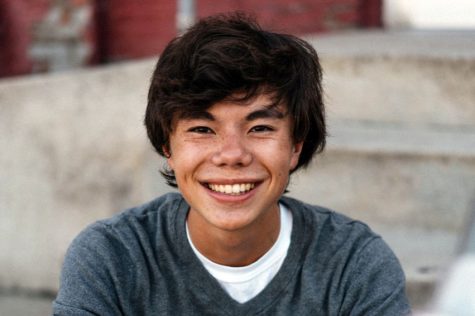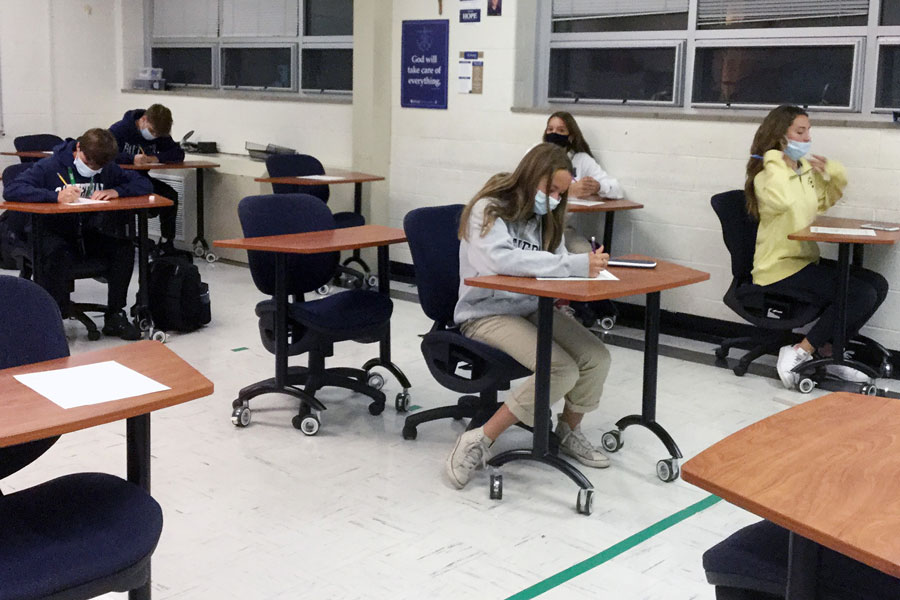Math League wraps up successful season
Teachers adjust competition to follow Covid protocols
Students participated in a Math League competition earlier this school year.
In traditional years, students would visit the activities fair to search for something outside of pure academics and athletics.
Math League always receives dozens of sign-ups, earning the status as the school’s largest extracurricular activity in terms of student participation. After their entry fee was paid, students would make their way up the Hill early in the morning to try their hand at tricky problems.
But in the Covid-19 saga, traditional competition was curtailed.
However, when looking back on this season, math teacher and Math League moderator Mrs. Lisa Ford wrote in an email, “We weren’t sure we’d even have a season, so we are content.”
Tests took place virtually this year. Ford said competitors would answer questions, send them back after 30 minutes and Ford would grade them. To maintain social distancing, competition took place in classrooms rather than a sardined cafeteria.
Unlike in years previous, students were not offered extra credit for participation and correct answers. But that didn’t stop the competition. Ford said, “Approximately 50 signed up, but only a few participated in every test.”
The few who did stand out include the top three finishers, senior Will Teasley, sophomore Cade Johnston and junior Lauren Caldwell. Other students who did well include senior Issac Michael, senior Eric George, sophomore Liam Eifert and junior Jack Koppin.
Caldwell wrote in an email that despite the inevitable Covid-19 protocols, “The experience was still one of a competitive math test that challenged you mentally.” The challenge is where many derived their fun in the first place. She said, “Math League is grounded within the challenging problems and the trial-and-error strategies, which was still present even in the altered format.”
Many of these students dived into advanced math classes earlier than their peers. For instance, Teasley takes linear algebra through Ball State after completing courses in multivariable calculus and differential equations. Eifert is enrolled in BC Calculus as a sophomore — about five levels ahead. Ford said, “Some kids love math, and they don’t need incentives. Intellectual stimulation and competition are valued by some very special students.”
A lack of bonus points didn’t seem to bother advanced students at all. Caldwell said, “I decided to compete in Math League because it is a great opportunity to challenge yourself and to combine what you have learned in your math class with critical thinking strategies to solve a complex problem that is not typically found in the classroom setting. Math League allows for competition, problem solving, learning, and development as a math student, but the critical thinking skills transcend beyond just math.”
While the pivots that were taken were successful, Ford said, “I personally missed having the opening day tailgate, and there is nothing as thrilling as watching over half the student body pouring into school on Math League Tuesdays. Still, all of the math teachers and I are so proud of what the participants accomplished.”
For said it is her hope that traditional Math League take place next year.

Andrew de las Alas is a senior and reporter for the Megaphone. He runs varsity cross-country, is co-captain of the speech and debate team and co-president...







